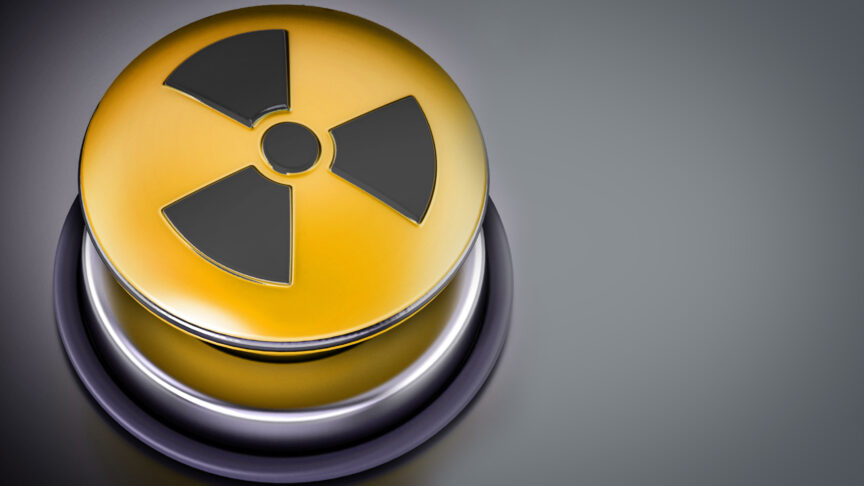
Multilateral nuclear disorder: Let’s rock till we explode
The global nuclear order has so far proven resilient in the face of Russia’s war on Ukraine. European engagement through the EU and NATO can help shore up this uneasy equilibrium

The global nuclear order has so far proven resilient in the face of Russia’s war on Ukraine. European engagement through the EU and NATO can help shore up this uneasy equilibrium
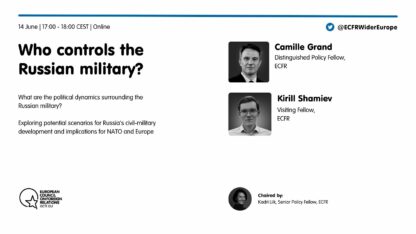
What are the political dynamics surrounding the Russian military? Exploring potential scenarios for Russia’s civil-military development and implications for NATO and Europe
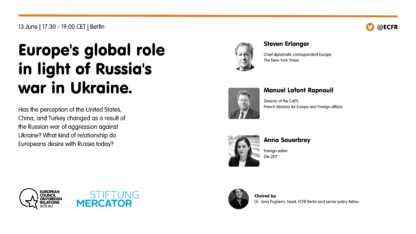
What do Europeans think about Russia, China, and the war in Ukraine? Join a panel of policymakers and expert observers to analyse ECFR’s latest public opinion…

An effective sanctions campaign in wartime needs to be linked to a strategic industrial policy and technology control agenda in peacetime
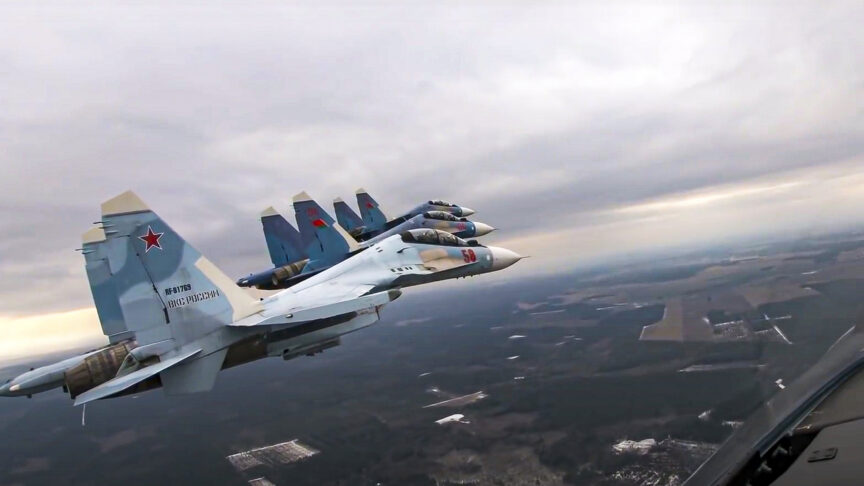
Putin may be bluffing about the deployment of tactical nuclear weapons in Belarus. But if he follows through, the chance of a democratic transition for Belarus could all but vanish
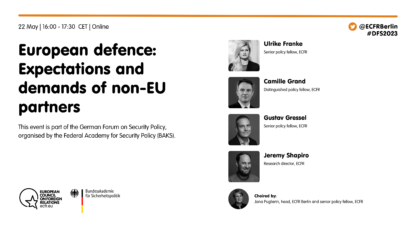
This event is part of the German Forum on Security Policy, organised by the Federal Academy for Security Policy (BAKS).

The war in Ukraine has reinforced the strategic role of global tech giants in defence and security policy. NATO and the EU should learn from this as they try to deter future aggressors
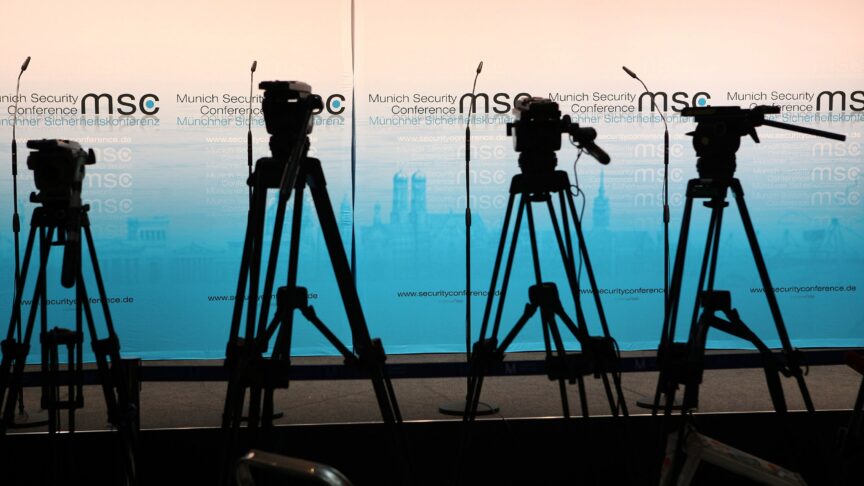
Mark Leonard reports live from the Munich Security Conference
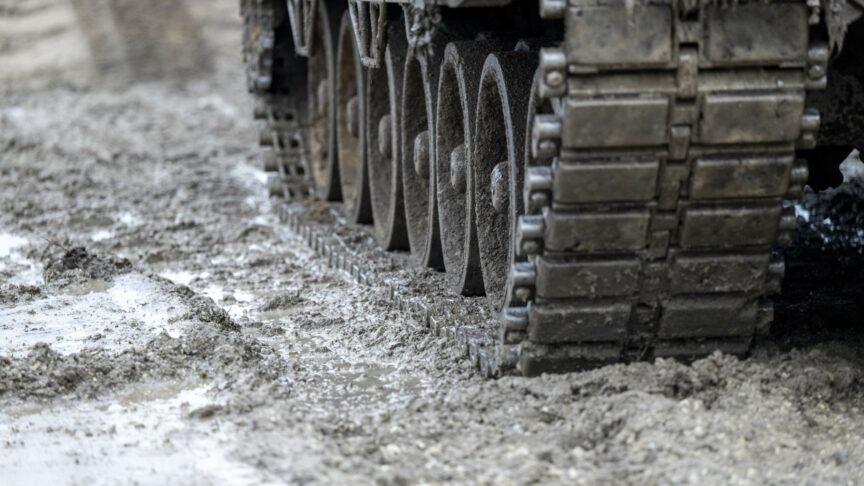
Military help for Ukraine is moving towards serious questions of logistics – but more countries still need to step forward. Here is how the next-stage coalition could look.
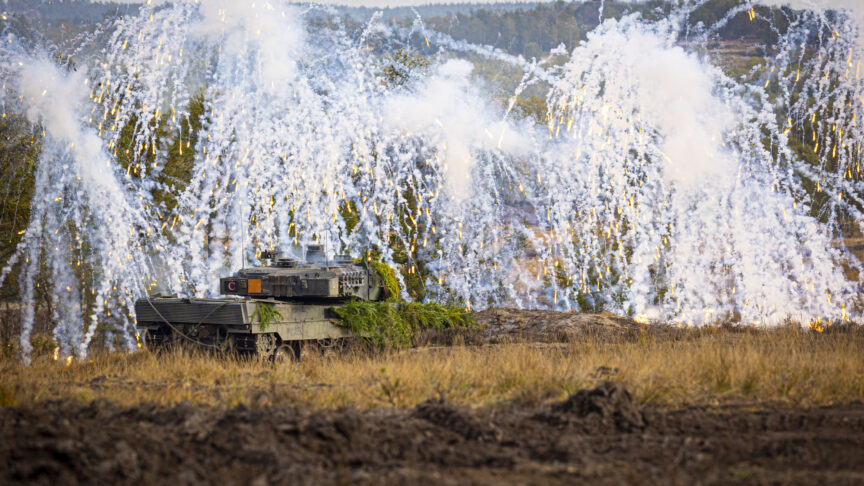
Mark Leonard, Camille Grand, Gustav Gressel, Jana Puglierin, and Jeremy Shapiro discuss what the Leopard 2 decision means for the war in Ukraine